Watching the behavior of birds in different situations can be wholesome and enjoyable, especially if you’re as curious as we are. We understand the urge to capture a certain bird in flight with your camera, read about strange habits, and take note of wild birds in your area. If you’re this type of bird enthusiast, you may have wondered about how birds act in the rain. So, where do birds sleep when it rains?
Birds tend to take cover from heavy rain in all sorts of natural and manmade hideouts. They’ll sleep in bushes, tree cavities, under eaves, and other human-made structures such as barns.
But how long do they stay in hiding, and do they ever come out in the rain? In this article, we’ll answer all the questions related to this topic.
The Behavior of Different Birds in the Rain
Sure, the majority of birds hurry to take shelter when it rains, especially if it’s a heavy downpour and not an occasional light rain. Yet, not all birds act the same way toward this type of weather. So, let’s find out how different birds face a rainy day.
Where Do Birds Sleep When It Rains: Sea Birds
One of the most fascinating things about sea birds is that they’ll sense a storm from miles away. As a result, gulls and pelicans usually manage to outrun a storm so that they won’t have to deal with rain at all.
Author Note: People who live in coastal areas normally take the absence of gulls as a sign of an approaching storm. Yet, these large sea birds could still handle staying out in the rain. Their preen glands will produce special oil to keep their feathers water-resistant.
However, smaller sea birds don’t like to face storms. So, they tend to end up taking cover from rain on the land. They’ll perch under any man-made structure to stay warm and wait out the rain.
Where Do Birds Sleep When It Rains: Land Birds
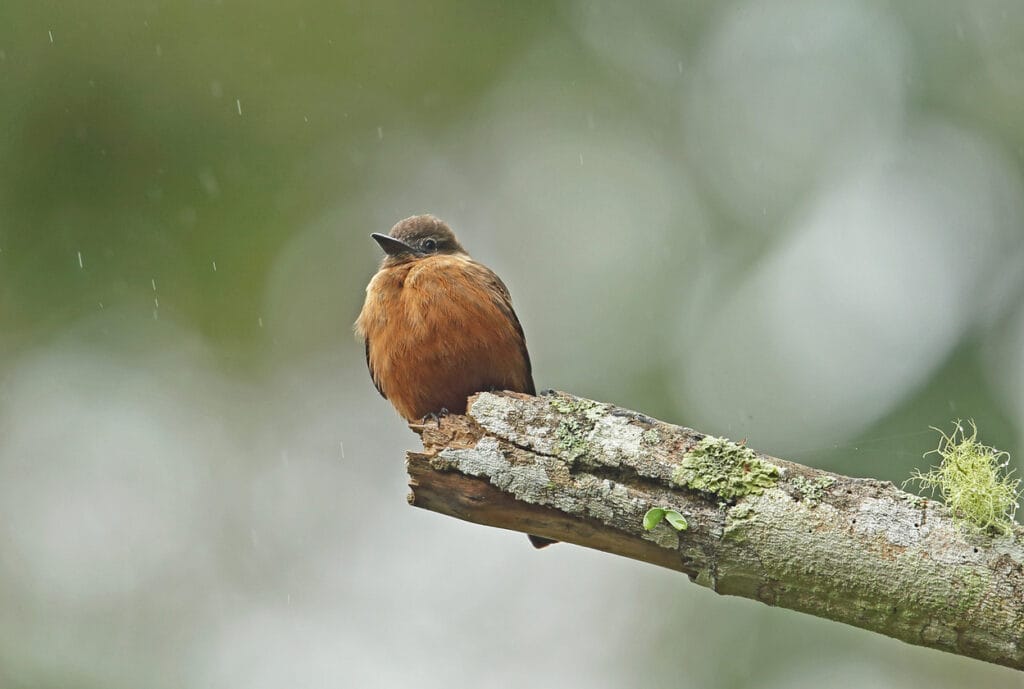
Most land birds can fly just fine in the rain. But when things become more challenging, as in a days-long downpour, these birds will seek shelter in countless places.
You’ll often find them hiding in the trees or bushes, staying motionless to preserve their heat and energy. However, if the rain lasts for too long, the birds will start getting hungry in their hiding spots.
This might prompt them to get out in the rain to seek food, especially if they need to feed their younglings.
Where Do Birds Sleep When It Rains: Song Birds
These tiny creatures prefer to shelter themselves against the rain by hiding in the foliage. They’ll stay still to keep their energy intact for as long as possible.
They also perch so that their faces are aligned with the direction of the wind. This way, they’ll eliminate air resistance, which should keep them from wasting their body heat until the rain is over.
Where Do Birds Sleep When It Rains: Raptors
These mighty beasts won’t be afraid of light rain. In fact, they don’t fear heavy rain either, but they take shelter from it nevertheless.
This is because raptors mainly go outside to hunt. So, they won’t be able to capture their prey since the weather will force their victims into hiding. Instead of wasting their energy in fruitless hunting, birds of prey choose to stay inside tree cavities and other shelters.
Where Do Birds Sleep When It Rains: Ducks and Similar Birds
Ducks don’t mind heavy rain. In fact, flooded fields are more like an opportunity to them since they provide new territories where they could stay.
Even better, wet areas mean a less likely chance of facing potential predators. Plus, the heavy rain turns the land so that more insect larvae come to the surface. For a duck, no other meal could be more delicious!
Why Do Birds Hide From the Rain?
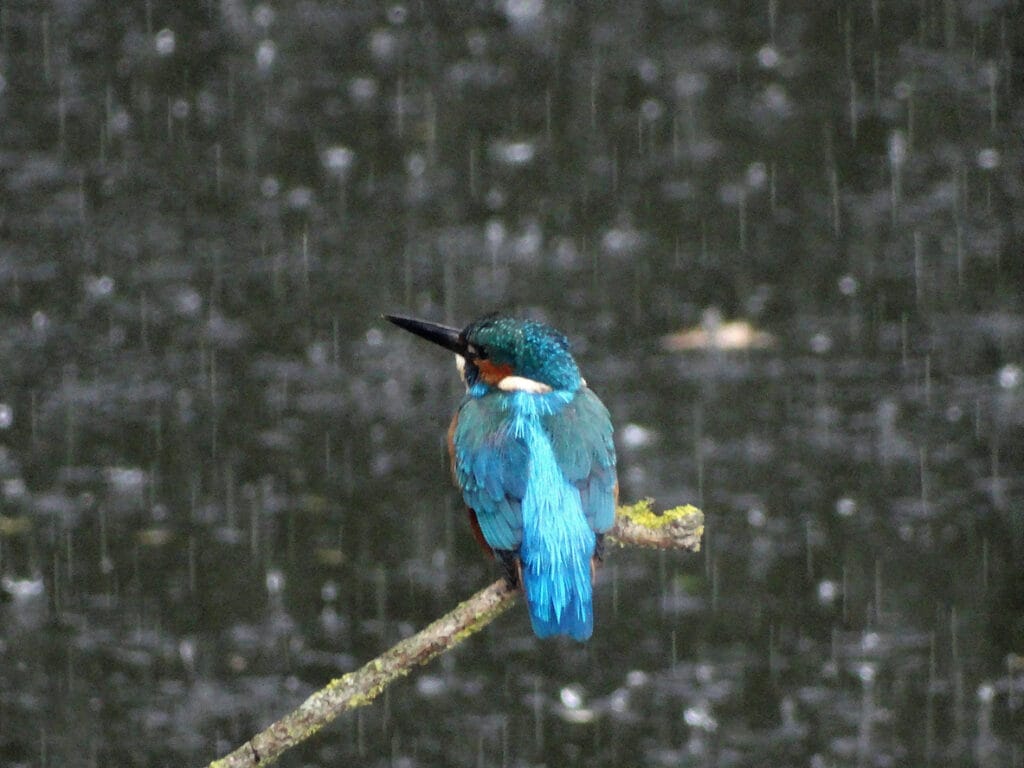
Being exposed to continuous rain can be risky for a bird. It all goes down to two major dangers that birds could suffer from if they stay out in the bad weather for too long.
Hypothermia
Hypothermia happens when a bird’s body is exposed to very cold temperatures for long periods of time. This can cause the body to lose heat faster than it produces, which would later lead to the consumption of all the heat.
Normally, a bird’s body can manage in cold temperatures by trapping tiny pockets of warm air under its feathers. But, if water slips into these spots instead of air, the bird will become cold in a blink of an eye.
Author Note: Things could become more troublesome for smaller birds, which have higher surface-area-to-volume ratios. In other words, small birds can lose heat more quickly than larger birds because their little bodies produce less energy.
For this reason, you might notice that small birds tend to seek shelter in rainy weather more hurriedly than larger birds would.
Starvation
The second factor that forces birds into hiding is starvation. Staying out in the rain will lower their body temperature, consuming energy to fight off the cold. As a result, they’ll need to compensate for that lost energy by eating.
Of course, it won’t be easy to find prey out in this bad weather since all animals go into hiding. So, birds need to hide from the rain, too, or else they’ll lose their heat pretty fast and become hungry in an instant.
However, sleeping inside a tree cavity or a bush won’t keep the birds from losing energy forever. That scenario might be suitable for an hour or two. But if the rain lasts longer than that, the bird will eventually need to get out in the wet weather to seek food.
How Do Birds Act When They’re Out in the Rain?
Fortunately, birds have special mechanisms to enable them to stay as warm as possible. The body posture that they choose mainly depends on the rain’s intensity. So, let’s cover each scenario.
Light Rain
As we’ve previously mentioned, most birds are fine staying outside in the light rain. Because their feathers are water-resistant, the birds will have a lower chance of feeling the cold or getting all wet.
In this case, birds will resort to the same body posture that they remain in when the weather is cold. They’ll fluff up their feathers so that the water will slide off their bodies without reaching their warm spots.
Heavy Rain
A bird won’t get out in heavy rain unless it absolutely has to in order to prevent starvation. When it does, the bird follows a different tactic to keep its body protected from the rain.
See, if a bird fluffs up its feathers in the face of heavy rain, the water could easily get between those feathers. As a result, the bird will feel chilly in a matter of moments.
Instead, birds sleek down their feathers to keep from getting wet. But that’s not all. For the perfect heavy-rain posture, a bird will keep its head withdrawn and its bill pointed in the direction of the rain. Also, its body will usually remain in an upright position.
This posture grants the birds the ability to conserve their heat, minimize exposure to the rain, and make the raindrops slide off their feathers.
Sometimes, birds will retreat to staying in this position if they have no shelter to wait out the rain inside it. They’ll huddle together to remain as warm as possible, keeping this posture until the rain is over. Quite impressive, don’t you think?
Rain in Tropical Areas

In hot countries that tend to suffer from long periods of drought, birds always seem to take full advantage of the rain. Instead of fluffing up their feathers or searching for a shelter, birds in tropical regions will take showers!
Author Note: They’ll fly to the highest branch of a tree or on top of a building, then splay their tail feathers and wings, absorbing the rain. Occasionally, they’ll shake themselves to get rid of any excess water.
After the rain stops, these birds will preen themselves and head to a sunny spot to dry their feathers. It’s fascinating how a change in climax and region can affect a bird’s behavior in the rain, right?
Are Birds Able to Fly in the Rain?
Again, that depends on how heavy the rain is. In light rain, birds should face no trouble navigating the skies. They’ll usually soar for short distances, though, using their natural oil to protect their feathers.
On the other hand, flying can be next to impossible in heavy rain. A bird’s wings will become quickly saturated with water, making it extra heavy and harder to use. So, flying during a storm isn’t an option because it can make birds vulnerable, especially where predators are concerned.
Wrapping Up
Where do birds sleep when it rains?
Well, birds sleep almost anywhere they could stay warm and away from the rain’s path. They might stay in foliages, nesting cavities, man-made structures, etc. However, if the storm keeps going on for too long, the birds will eventually step outside to calm down their hunger.
Depending on the intensity of the rain, birds will pursue different tactics to keep water off their bodies. And, when the sun shines again, you should find these avian creatures perched outside to dry their feathers. We’re pretty sure that sight is worth watching!
We hope you enjoyed this article on where do birds sleep when it rains.
Fly high friends!
FAQ
Some birds may make more noise in the rain because it brings worms and bugs to the surface of the ground and that makes them sing.
Nests can become waterlogged in rain but usually, due to their construction, the water should flow through it. The chicks are probably more in danger of getting cold. In bad weather the parents will stick very close to them for protection.
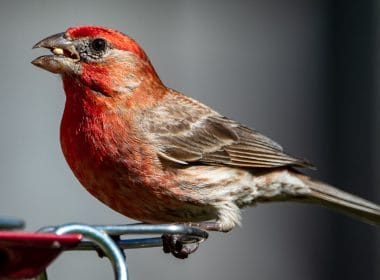

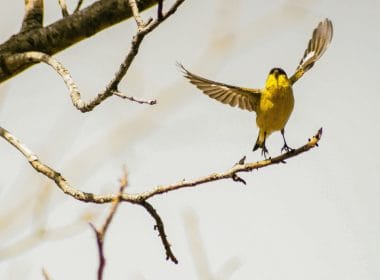

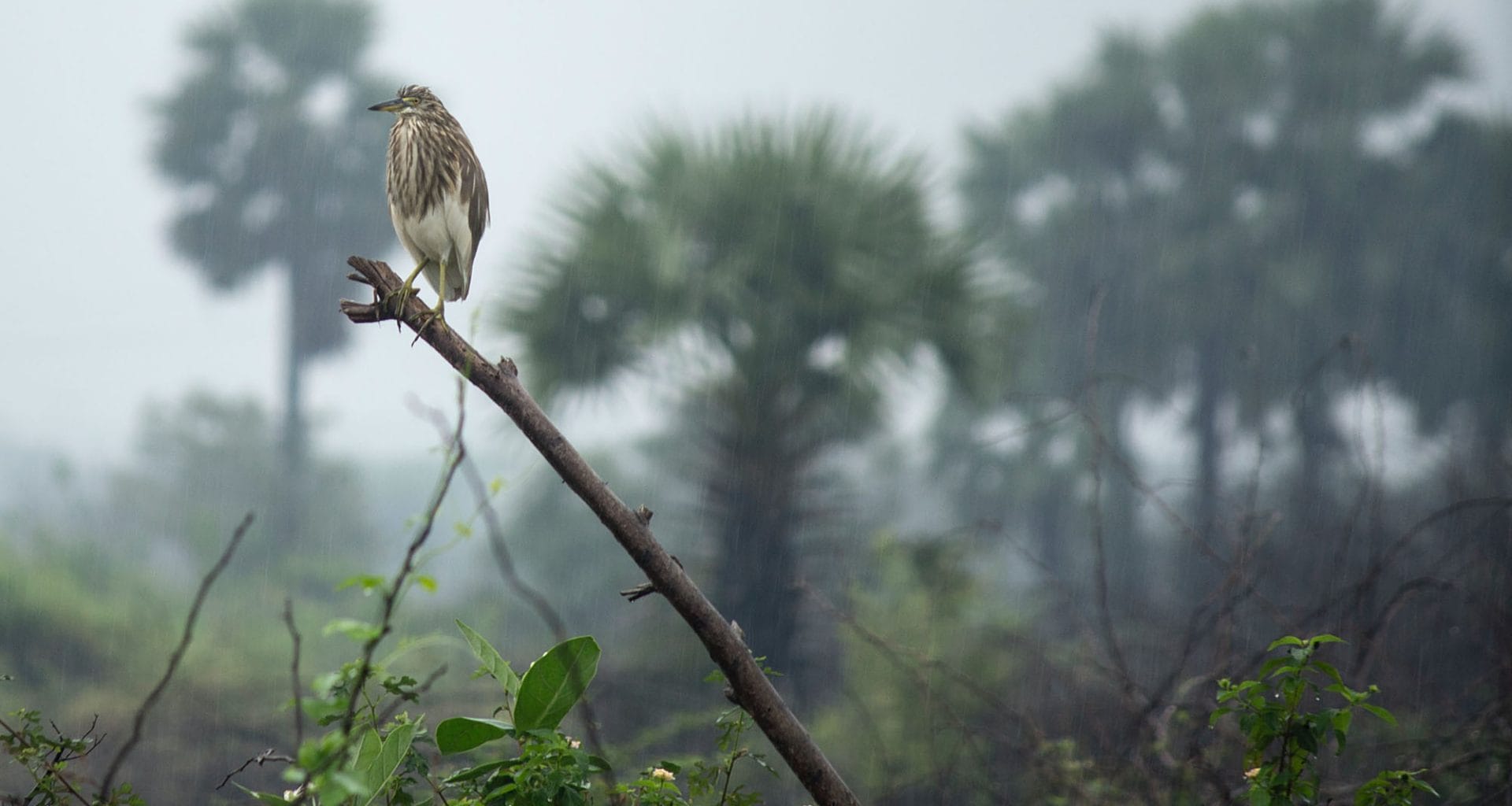
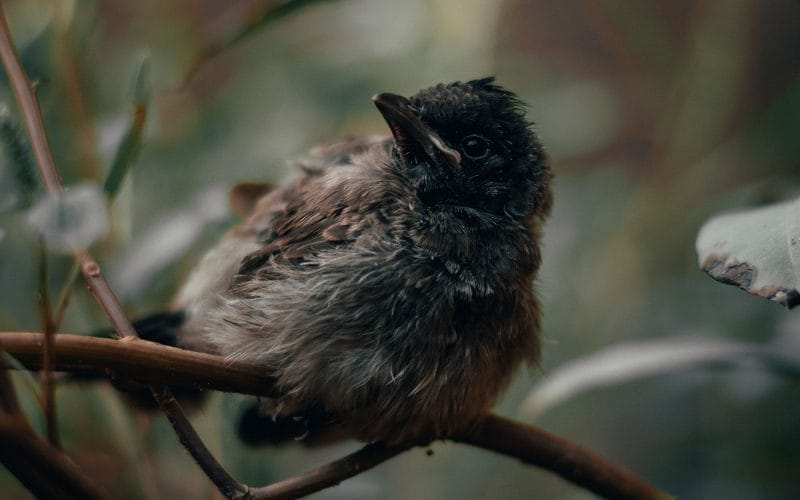


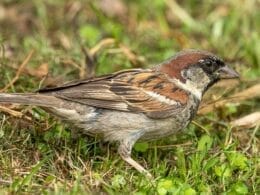
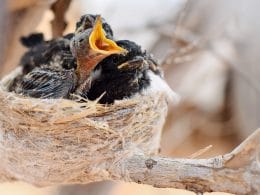
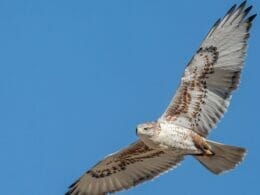
So interesting. The world of birds have so many wonderful things that I want to discover. At home, I also have a bird. It look so beautiful. Hope you write more so I can know more about them to take care them better.